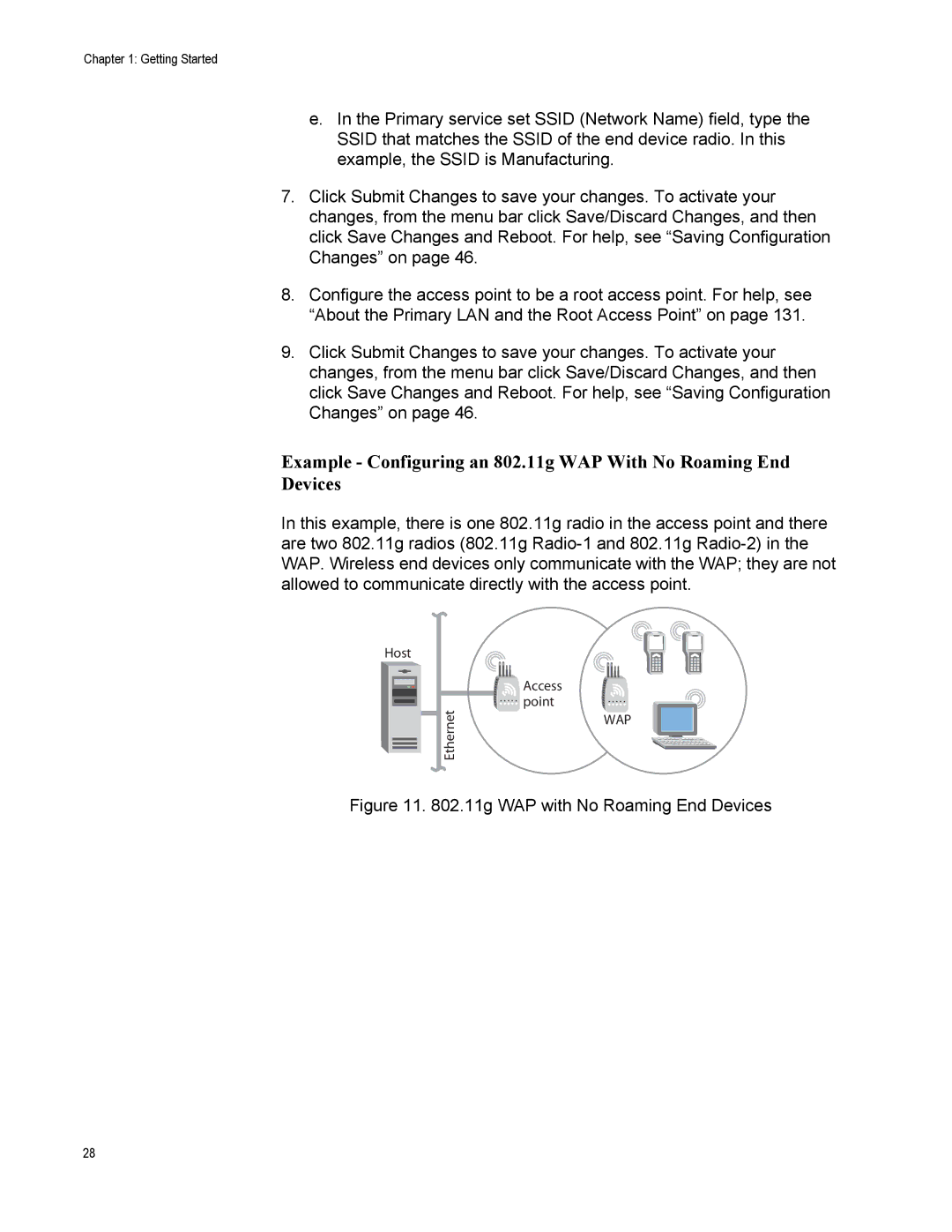
Chapter 1: Getting Started
e.In the Primary service set SSID (Network Name) field, type the SSID that matches the SSID of the end device radio. In this example, the SSID is Manufacturing.
7.Click Submit Changes to save your changes. To activate your changes, from the menu bar click Save/Discard Changes, and then click Save Changes and Reboot. For help, see “Saving Configuration Changes” on page 46.
8.Configure the access point to be a root access point. For help, see “About the Primary LAN and the Root Access Point” on page 131.
9.Click Submit Changes to save your changes. To activate your changes, from the menu bar click Save/Discard Changes, and then click Save Changes and Reboot. For help, see “Saving Configuration Changes” on page 46.
Example - Configuring an 802.11g WAP With No Roaming End
Devices
In this example, there is one 802.11g radio in the access point and there are two 802.11g radios (802.11g
Host
Ethernet
![]() Access
Access ![]()
![]() point
point
WAP
Figure 11. 802.11g WAP with No Roaming End Devices
28
